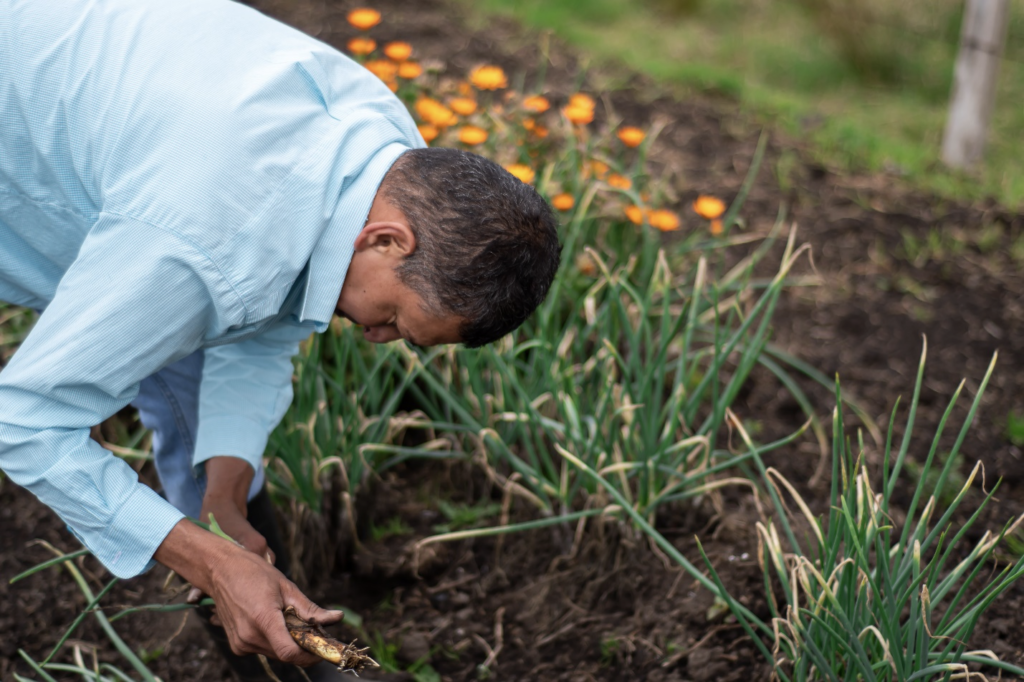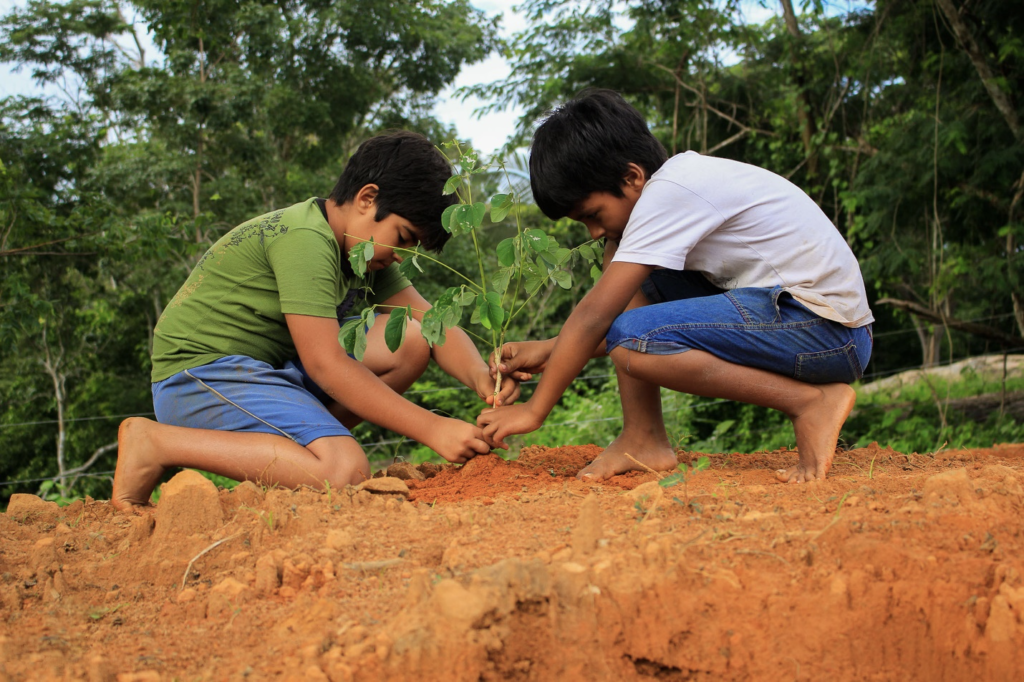Natural composting is a process that turns organic waste into compost, which is a nutrient-rich soil additive. Numerous advantages, including a decrease in greenhouse gas emissions and an improvement in soil health, are provided by this eco-friendly and sustainable technique. Individuals and communities may support a healthier environment and a greener future by adopting composting.
Composting organic waste provides several advantages. First, it helps redirect garbage away from landfills, where organic matter decomposes anaerobically and emits methane, a powerful greenhouse gas. Composting allows organic waste to be transformed into a valuable resource rather than rotting and contributing to climate change. Furthermore, composting reduces the requirement for chemical fertilisers greatly. Compost provides soil with important nutrients, boosting healthier plant development and lowering dependency on synthetic fertilisers, which can harm ecosystems and water sources.

Composting also helps to improve the soil’s structure. Compost improves soil aggregation, enabling better water infiltration, retention, and aeration. These characteristics lead to less soil erosion and greater drought tolerance. Furthermore, compost functions as a natural soil conditioner, boosting the soil’s general fertility and production. It aids in the replenishment of organic matter, encourages the development of advantageous microbes, and maintains a diversified soil ecology, which results in healthier and more resilient plants.
The Process of Composting
Composting is a straightforward process that can be carried out at various scales, from small household compost bins to large-scale municipal composting facilities. The process involves the controlled decomposition of organic materials through the activities of microorganisms, primarily bacteria and fungi. The key elements required for successful composting are organic waste, moisture, oxygen, and the right carbon-to-nitrogen ratio.
The composting process begins with the collection of organic waste materials such as kitchen scraps, yard trimmings, and leaves. These materials should be mixed in the correct proportions to achieve the ideal carbon-to-nitrogen ratio. Generally, a ratio of 25-
30 parts carbon to 1-part nitrogen is recommended. Carbon-rich materials include dry leaves, straw, and wood chips, while nitrogen-rich materials encompass food waste, grass clippings, and manure.
Once the organic waste has been collected and combined, it’s critical to maintain the proper moisture content. To encourage microbial activity, the pile should be wet, akin to a sponge that has been wrung out. The aerobic decomposition process requires oxygen, which is introduced into the pile on a regular basis by turning or mixing the pile. To guarantee appropriate aeration and encourage uniform decomposition, the composting pile should be changed every few weeks.
The pile decomposes over time in various stages as the organic elements degrade. The mesophilic phase begins as the temperature rises and microorganisms break down the organic materials. The pile then moves into the thermophilic phase, which is marked by extremely high temperatures that can reach 140–160°F (60–71°C). These high temperatures render the compost unusable by killing bacteria and weed seeds. The compost pile finally enters the maturation period, where it cools and becomes a stable, earthy-smelling material.
Reducing Greenhouse Gas Emissions and Improving Soil Health

Composting is essential for lowering greenhouse gas emissions, especially methane, which has a 25-fold greater global warming potential than carbon dioxide. Composting reduces the environmental impact of waste management by keeping organic waste out of landfills where it would otherwise degrade anaerobically and generate methane. When organic waste is composted aerobically, carbon dioxide rather than methane is produced during the decomposition process. Although carbon dioxide is still a greenhouse gas, it has a far smaller effect than methane.
Composting organic waste also increases the fertility and health of the soil. Compost nourishes soil by introducing organic matter, necessary nutrients, and advantageous microorganisms. Organic matter enhances soil structure, enhancing nutrient availability, water retention, and aeration. In turn, this promotes stronger plant development, higher crop yields, and less soil erosion. Compost also functions as a natural buffer, balancing soil pH and preventing dangerous pollutants from leaking into groundwater.
Additionally, composting helps to save water resources. Compost-enriched soil offers better water-holding capacity, requiring less irrigation. This is especially helpful in areas where there is a water shortage or a history of drought. Farmers and gardeners can reduce the environmental impact of excessive irrigation by using compost and maximizing water use.
Composting also promotes ecosystem health and biodiversity. Composting soil improves the environment for beneficial bacteria, earthworms, and other species that live there. These microbes improve nutrient cycling, decompose organic debris, and add to the soil’s total biological activity. Plant resiliency, insect resistance, and general ecosystem stability are all facilitated by a healthy soil environment.
Implementing Composting Practices
It is essential to give individuals, communities, and organisations access to information and resources in order to promote the wide adoption of composting. Through efforts to educate the public, incentives, and the development of composting infrastructure, governments can significantly contribute to the promotion of composting programs. For those without personal composting facilities, community composting initiatives can be formed where residents can collectively compost their organic waste.
Individual households can compost their organic waste by creating compost heaps or bins in their gardens or by using urban-specific composting techniques like worm composting (vermicomposting) or Bokashi composting. People must be taught how to properly compost, including how to separate garbage, keep the proper carbon-to-nitrogen ratio, and ensure that there is enough moisture and aeration.
To handle their organic waste, institutions like schools, businesses, and farms might set up on-site composting systems or work with nearby composting facilities. These projects have the potential to save waste management costs while simultaneously providing an important resource for farming, gardening, and other outdoor activities.

Organic waste composting has numerous environmental advantages, including lowering greenhouse gas emissions, conserving landfill space, enhancing soil health, and fostering sustainable agriculture. Individuals and communities can take active steps to combat climate change, conserve resources, and promote a healthy environment by keeping organic waste out of landfills and utilising it through composting.
It is essential that governments, organisations, and individuals recognise the importance of composting and collaborate to encourage its adoption. Composting can become a widely accepted technique through education, infrastructure development, and incentives, resulting in a greener future and a more sustainable approach to waste management. We can produce healthier soils, lower our carbon footprint, and create a more sustainable and resilient planet for future generations by treating organic waste as a beneficial resource rather than a burden.
Sources
- https://www.epa.gov/recycle/compostinghome#:~:text=for%20Home%20Composting-,What%20is%20Composting%3F,crumbly%2C%20earthy%2Dsmelling%20material.
- https://extension.uga.edu/publications/detail.html?number=B1189&title=food-waste-composting-institutional-and-industrial-application
- https://www.sciencedirect.com/topics/earth-and-planetary-sciences/composting
- https://www.bhg.com/gardening/yard/compost/how-to-compost/
- https://www.mass.gov/doc/presentation-home-composting-for-zero-waste/download
- https://www.javatpoint.com/advantages-and-disadvantages-of-composting




